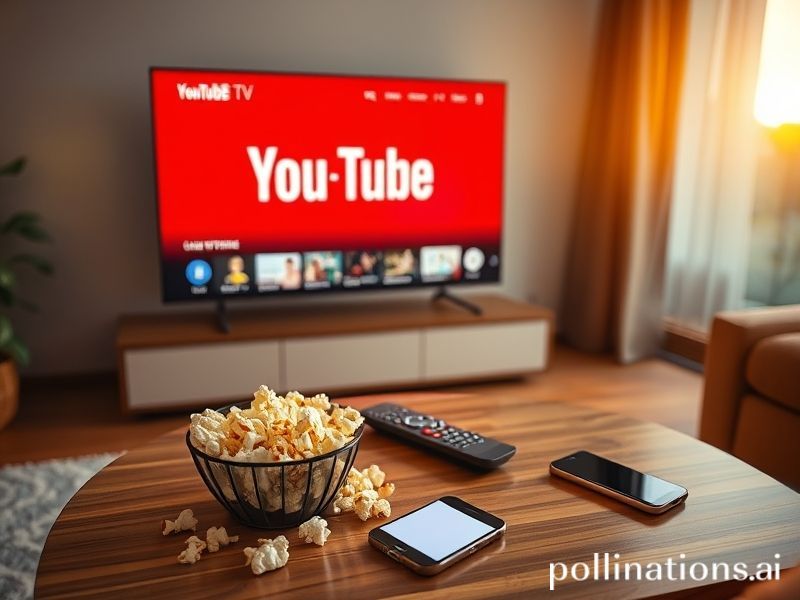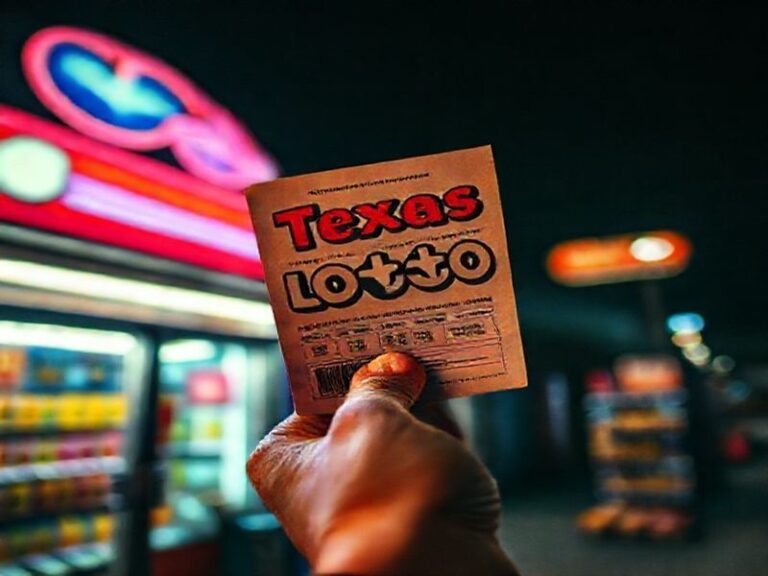YouTube TV’s Global Coup: How One Streaming App Became the World’s Favorite Digital Colony
YouTube TV: The Planet’s Couch Potato Imperialism
(Dave’s Locker International Desk, 14 June 2024)
From the smog-choked high-rises of Jakarta to the one-bar villages of rural Moldova, humanity has finally agreed on something: the best way to see the world is to sit perfectly still and let Google beam it into your retinas. YouTube TV—Alphabet’s jolly little Trojan horse of live channels, cloud DVRs, and algorithmic nudging—now claims north of eight million paid subscribers. That may sound modest next to Netflix’s binge-drunk legions, but consider the context: these are eight million people who voluntarily pay American prices for television that is, by definition, already free somewhere else. Global capitalism has achieved Peak Irony; we are now charged a monthly fee for the privilege of not bothering to pirate.
The service is still officially “U.S.-only,” which in 2024 means it is available everywhere except the places where regulators remember how to read antitrust filings. VPN merchants from Lagos to Lahore report brisk trade in ersatz Californian IP addresses; meanwhile, the European Commission mutters about “level playing fields” while discreetly renewing its own subscription. The resulting geo-masquerade has created a new class of international criminal: the kid in Nairobi who sells 4K Bengali Premier League streams to homesick Qataris, then spends the profit on a legitimate YouTube TV login so he can watch the NBA without explaining to his mother why the FBI logo just flashed on the screen.
Culturally, the implications are deliciously bleak. YouTube TV’s default lineup exports the full imperial smorgasbord—NFL, Real Housewives, and 24-hour cable news—flattening local eccentricities into one algorithmic Esperanto of branding. French cinephiles who once prided themselves on discovering hidden gems at the Cinémathèque now queue up for the same Wednesday-night Law & Order marathon as a trucker in Toledo. Call it the McDonaldization of attention spans, except at least McDonald’s lets you order a Royale with Cheese; YouTube TV just auto-plays another cop procedural subtitled in whatever language you once called your mother tongue.
Advertisers, naturally, are ecstatic. The platform’s real product isn’t television; it’s the world’s most granular surveillance panopticon disguised as a channel guide. Every pause, rewind, or guilty “continue watching” click is dutifully logged, packaged, and sold to data brokers who resell it to political consultancies in time for the next election cycle. In countries where vote-buying traditionally involved envelopes of cash, campaigns now simply micro-target the undecided with bespoke ads about inflation and transgender athletes. Democracy, it turns out, scales beautifully when the electorate can be sliced into 30-second pre-roll segments.
The economic ripple effects are equally perverse. Traditional broadcasters—those quaint national entities once tasked with safeguarding culture—find themselves competing against a cloud DVR that never forgets, never sleeps, and has no obligation to carry local content quotas. Canada’s CRTC recently demanded YouTube TV stock 30 % Canadian programming, to which the company responded by offering up reruns of Degrassi and a looping animation of Justin Trudeau apologizing for existing. Similar negotiations are under way in Australia, where regulators insist on home-grown drama; YouTube TV’s counter-proposal is a 24-hour live feed from Canberra Parliament, reasoning that nothing is more dramatic than watching democracy slowly choke on its own question time.
And yet, for all the hand-wringing, the service has become a lifeline for diasporas who would otherwise need three satellite dishes and a forgiving landlord. A Filipino nurse in Dubai can watch her hometown network’s nightly news and feel, for one hour, the illusion of return. A Ukrainian refugee in Warsaw can keep up with the war’s latest absurdities without waiting for the BBC to decide they matter. In those moments, YouTube TV stops being a cynical data-harvesting scheme and briefly becomes what television always promised but rarely delivered: a communal hearth for the globally displaced, glowing softly in the dark while the world burns for ad-supported reasons beyond our pay grade.
So here we are: eight million paying witnesses to the slow merger of culture, commerce, and surveillance into one endlessly buffering monoculture. The good news? You can cancel anytime. The bad news? You won’t. After all, the next episode starts in five seconds, and resistance requires getting off the couch.







